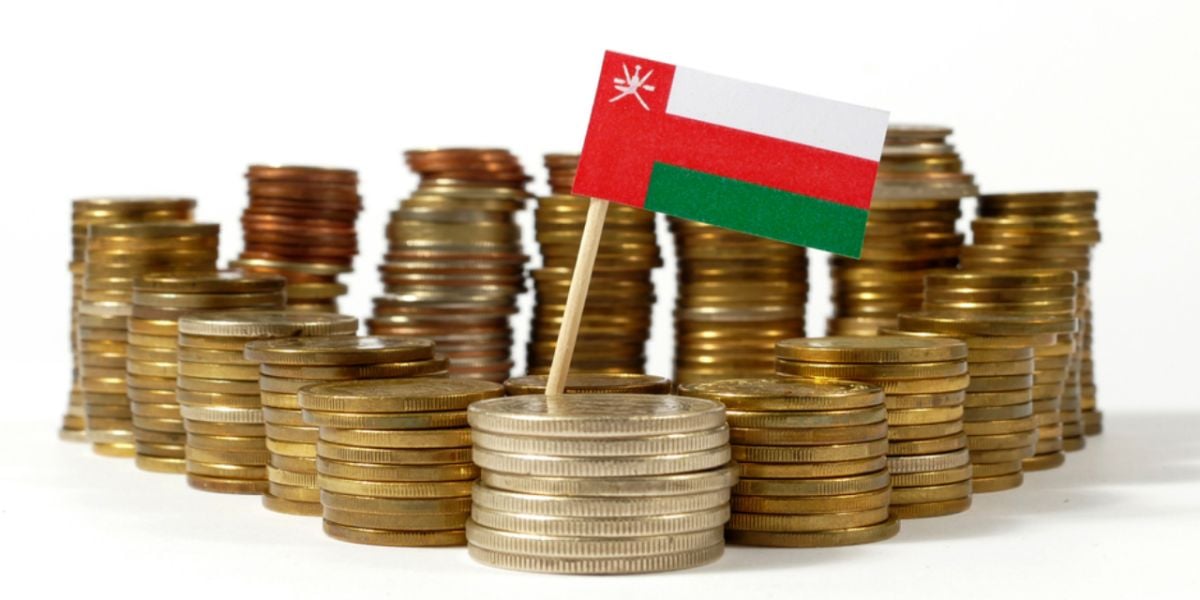
One of the major incentives for foreigners to move to Oman and, more generally, to a Middle Eastern country is that they are considered tax-free, as it is common that personal incomes aren't taxed. In fact, these countries focus on taxing businesses rather than individuals by requiring all companies to pay a corporate income tax. However, this seems to be slowly changing in the area.
Oman's tax system has undergone significant changes in recent years as the Omani government seeks to diversify its revenue sources and reduce its reliance on oil revenues. The tax system includes corporate income tax, value-added tax (VAT), and other taxes and duties.
Corporate income tax in Oman
The corporate income tax is applicable to all types of companies incorporated in Oman or having a permanent establishment in Oman. Branches of foreign companies are also subject to the same tax based on the income earned in Oman.
Good to know:
There is a reduced tax rate for small and medium companies owned and managed by locals, which is only 3%. It is only applied if companies meet specific criteria, such as having less than 15 employees, having a yearly income not more than OMR 100,000 and only in a few sectors.
Taxable income generally refers to all income earned by the company, both domestic and foreign, subject to certain deductions and adjustments. The expenses incurred wholly and exclusively in earning income are generally eligible for deduction. These include operating costs, interest, depreciation, and certain provisions. Certain expenses, such as fines, penalties, and certain provisions, are not deductible.
Moreover, employers may benefit from tax breaks and incentives in certain sectors, especially those that align with national development goals. For example, companies in the education, healthcare, agriculture, fishing, tourism, and mining industries can benefit from tax exemptions or reductions, subject to certain conditions and with government approval. Special Economic Zones (SEZs) and Free Trade Zone companies can also benefit from tax exemptions and other tax incentives.
Good to know:
Oman imposes a 10% withholding tax on certain payments to non-residents, including royalties or management fees.
Filing a tax return is mandatory in Oman
Companies must file their annual tax return with the Oman Tax Authority (OTA) within six months of the end of their fiscal year. The fiscal year is generally the same as the calendar year unless a different reporting period is approved.
Tax is paid in two installments. 50% of the estimated tax due is due within three months after the end of the financial year, and the remaining amount is due when filing the tax return. Oman imposes penalties for late filing of returns, underpayment of taxes, and non-compliance with tax laws. These penalties may include penalties and additional fees for unpaid taxes.
Good to know: Oman has double-tax treaties with several countries that provide relief and avoid double taxation. These treaties may also offer lower tax rates on dividends, interest, and royalties paid to residents of the signatory countries.
Customs duties in Oman based on GCC law
Customs duties in Oman are levied on goods imported into the country and are a significant source of government revenue. The system is governed by the General Customs Law of the Gulf Cooperation Council (GCC), of which Oman is a part, and complies with international trade agreements and standards.
Oman's standard customs rate is 5% of the value of most imported products. However, this rate may vary depending on the type of product and certain exemptions or additional duties that apply in different circumstances. They are calculated based on the CIF (cost, insurance, and freight) value of the goods. This means that the value includes the cost of the goods, insurance, and transportation costs to the port of entry in Oman.
Good to know:
Certain products are exempt from customs duties or are eligible for reduced tax rates. Certain mechanisms and devices used in the raw materials and industrial sectors could require an exception or a reduction to promote local industries. Products imported into local freezone areas can be exempt from duties if they are produced or used in the area.
Importers must declare all the products provided to Oman and provide all necessary documents, such as a commercial invoice and a certificate of origin.
Customs authorities may inspect goods to verify their declared value, classification, and compliance with import regulations. Once satisfied, customs duties are assessed and paid before the goods are cleared to enter the Omani market.
Oman is a member of the World Trade Organization (WTO) and participates in various international trade agreements, which may affect customs duties and tariff preferences. The country's membership in the GCC Customs Union also harmonizes tariffs and procedures with other GCC countries.
Excise tax in Oman
Oman introduced the excise tax on June 15, 2019, as part of the broader fiscal reforms and in line with the GCC's unified agreement on selective taxes. The tax aims to discourage the consumption of products considered harmful to health and society.
Excise tax is currently applied at specified rates to the following categories of goods:
- tobacco products: 100%;
- energy drinks: 100%;
- soft drinks: 50%;
- alcoholic beverages: 100%;
- pork products: 100%;
- sweet drinks: 50%.
Good to know:
The excise tax rates are applied to the retail price. Retailers must ensure that excise tax is included in the price of the goods sold to consumers.
Companies that are subject to item tax are required to maintain the appropriate registration of all transactions linked to persistent products. The records related to excise tax should include purchase invoices, sales receipts, import/export documents, and other relevant information. Records must be kept for a specified period (usually five years) and must be available for inspection by OTAs if necessary.
Good to know:
Goods in transit or being re-exported through Oman may also be exempt from excise duty, subject to necessary documentation and compliance requirements. Therefore, Oman remains a good logistic platform for trading such goods with the nearby markets.
Value-Added Tax (VAT) in Oman
On April 16, 2021, Oman introduced a value-added tax (VAT) in line with the Gulf Cooperation Council's (GCC) VAT Framework Agreement as part of a broader tax reform initiative. The measure, along with many others, aimed at diversifying government revenue sources and reducing reliance on oil revenues. The VAT is considered as a fair tax as it's paid by all consumers in Oman.
The standard VAT rate in Oman is 5%. VAT applies to sales of goods and services by taxable persons (businesses) in Oman, including imported goods that are subject to VAT. Some goods and services are zero-rated, which means VAT is charged at 0%, but businesses can claim VAT on inputs.
Businesses operating in Oman must ensure they are compliant with the VAT regulations, including proper registration, accurate invoicing, timely filing of returns, and diligent record-keeping. Submitting VAT returns
VAT returns are typically submitted quarterly; however, the Oman Tax Authority (OTA) may specify different filing periods for certain businesses.
VAT returns must be filed and VAT paid within 30 days after the end of the tax period. Businesses must keep proper records of all transactions, including invoices, credit notes, debit notes, and other relevant documentation, for at least 10 years. These records must be easily accessible for OTA inspection. VAT is levied on imported goods at the point of entry and covers the cost of importation, including customs duties and other charges.
Stamp tax on legal documents and transactions in Oman
In Oman, stamp duty, also known as stamp tax, is a tax levied on certain legal documents and transactions. It is a form of tax that confirms the legal status of various documents and agreements.
Stamp tax is mainly applied to real estate transactions in Oman. This includes the sale and purchase of real estate, leases, and other real estate contracts. This also applies to various legal documents, such as contracts, agreements, powers of attorney, and other official documents that require verification or legal approval.
The standard stamp duty rate for real estate transactions in Oman is 3% of the selling price of the property. This tax is usually paid by the buyer when registering the property with the Ministry of Housing. It should be considered in the overall cost when buying a property.
Long-term leasing and rental contracts often require stamp fees, and leases are legally binding and recognized. Certain commercial contracts, including partnership agreements, shareholders' agreements, and other legal contracts, may also be subject to stamp duty, depending on their nature and value. The tax is generally paid when registering documents with the competent authorities.
Important:
For certain transactions, especially those involving large amounts or complex contracts, we recommend consulting a lawyer or tax professional to ensure strict compliance with Oman's stamp duty tax regulations.
A potential future income tax under discussion among GCC countries
The future of income tax in the Gulf Cooperation Council (GCC) countries, which include Bahrain, Kuwait, Oman, Qatar, Saudi Arabia, and the United Arab Emirates (UAE), has historically relied on oil and gas revenues to finance their economies. However, as these countries strive to diversify their economies and face fluctuating oil prices, discussions about the possibility of introducing income taxes continue. Many GCC countries have strategic vision plans that aim to reduce their reliance on oil revenues by developing other sectors such as tourism, finance, and technology. Increased oil income is essential for economic stability, especially in terms of oil prices.
Good to know:
If a personal income tax is introduced, it will probably gradually take place with higher or specific income support.
Expatriates make up a large portion of the workforce in GCC countries, so the introduction of a personal income tax could affect their financial planning and willingness to work in the region.
Useful links:
Sultanate of Oman Tax Authority
We do our best to provide accurate and up to date information. However, if you have noticed any inaccuracies in this article, please let us know in the comments section below.








